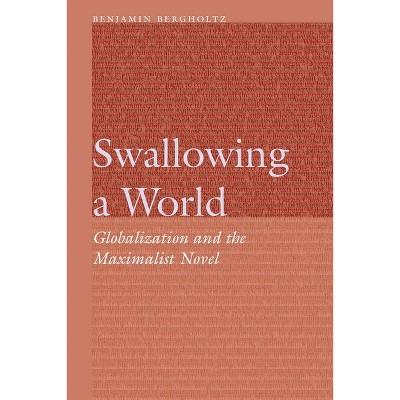Sponsored

The Frontiers of Science - by Benjamin Lewin (Hardcover)
Pre-order
Sponsored
About this item
Highlights
- Science dominates modern intellectual life, yet few fully appreciate the path by which science evolved into such a driving cultural force.
- About the Author: Benjamin Lewin is a molecular biologist by background.
- 750 Pages
- Science, Philosophy & Social Aspects
Description
About the Book
Spanning key discoveries from 500 BCE to the modern day, including all areas from astronomy, neuroscience, computing and AI, this book reveals how science advances, not in a straight line, but through a zigzag of progress and dead ends.
Book Synopsis
Science dominates modern intellectual life, yet few fully appreciate the path by which science evolved into such a driving cultural force. The Frontiers of Science traces the centuries-long development of science from an endeavour intertwined with other disciplines into an independent field with its own procedures and principles.
Spanning key discoveries from 500 BCE to the modern day, including all areas from astronomy, physics, biology, neuroscience, computing and AI, it reveals how science advances, not in a straight line, but through a zigzag of progress and dead ends.
Along the way, The Frontiers of Science explores pivotal junctures where pioneering thinkers took wrong turns, faced resistance from contemporary beliefs, and navigated challenging notions of truth. It analyzes how novel scientific ideas struggled to gain acceptance among scientists and in society until evidence and corrections hammered out their validity.
The book considers how AI may change the nature of science, assesses the limits of science today, and discusses the dangers that pseudoscience and the rejection of science pose for society.
Instead of viewing science through a societal lens, this book uniquely examines breakthroughs from the scientist's perspective. It ultimately illuminates why the self-scrutinizing, self-correcting nature of science underpins its success in understanding the natural realm.
For readers intrigued by science's influence on modern times, this is an unparalleled guide to how it assumed a transformative role through a turbulent, obstacle-strewn evolution.
About the Author
Benjamin Lewin is a molecular biologist by background. He obtained his undergraduate degree and PhD at the University of Cambridge, and was founding editor of the international science journal Cell at MIT. He has written widely on genetics and on science in general, and has also authored a series of books on wine.
Shipping details
Return details
Frequently bought together

Trending Non-Fiction
















